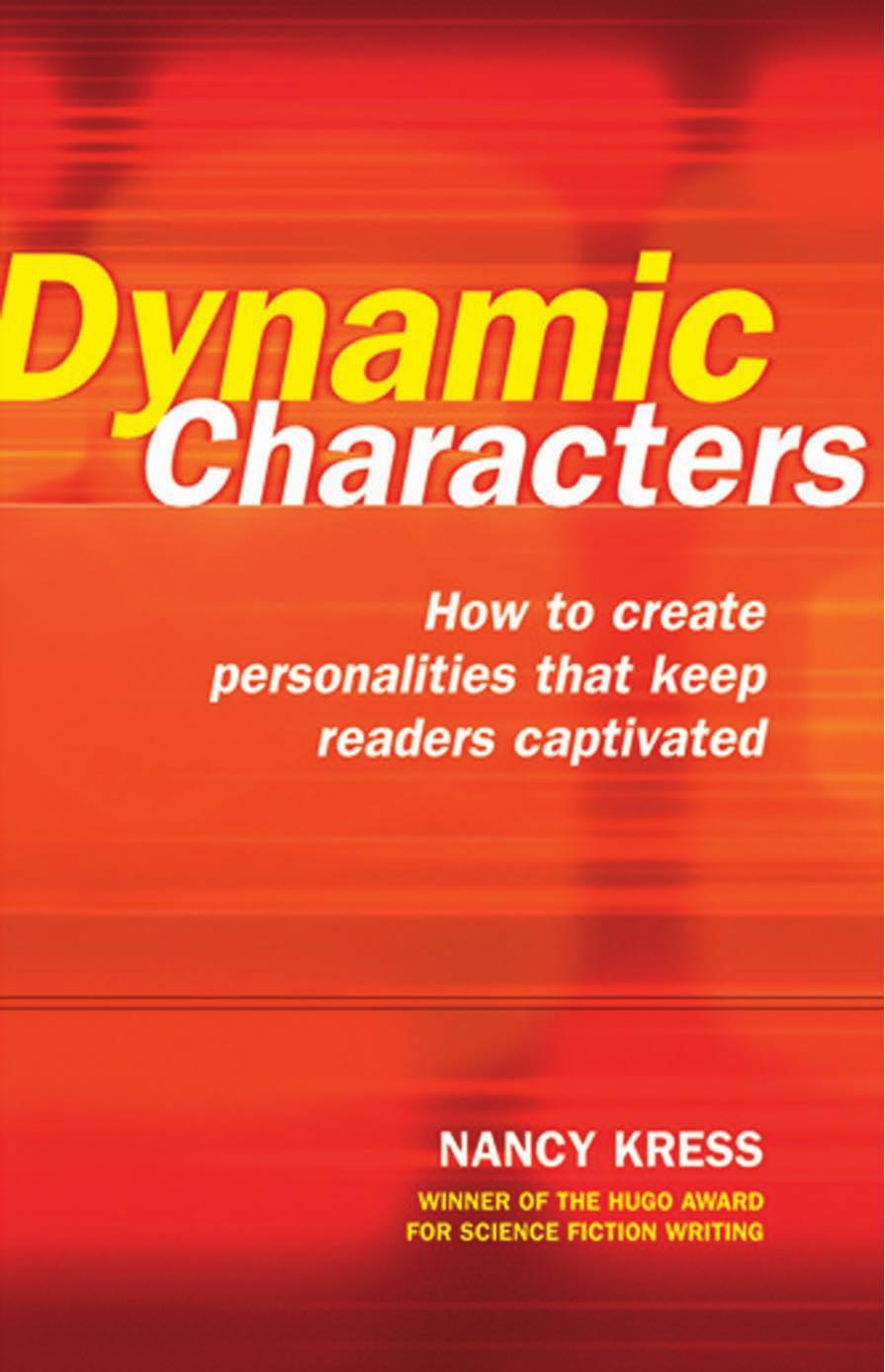Dynamic Characters by Nancy Kress

Author:Nancy Kress [Kress, Nancy]
Language: eng
Format: epub, pdf
Published: 2011-04-07T07:00:00+00:00
WHAT KIND(S) OF FOOD?_
CAN HE/SHE COOK?_HOW WELL?_
ENJOYS SHOPPING? □ NOT PARTICULARLY □ YES HOW MUCH? □ MILDLY □ A LOT □ ADDICTED
SHOPPING FOR WHAT?_
WHERE?_
HOME
WHERE DOES THE CHARACTER LIVE?
□ BIG CITY □ SMALL TOWN
□ RURAL AREA □ OTHER_
WHERE WOULD HE/SHE PREFER TO LIVE?
□ BIG CITY □ SMALL TOWN
□ RURAL AREA □ OTHER_
WHY DOESN'T HE/SHE LIVE THERE?_
WHAT KIND OF HOME?
□ APARTMENT □ HOUSE □ TRAILER □ OTHER_
WHAT KIND OF HOME WOULD HE/SHE PREFER?
□ APARTMENT □ HOUSE □ TRAILER □ OTHER_
WHY DOESN'T HE/SHE LIVE THERE?_
DECOR OF PERSONAL SPACE CONTROLLED BY THIS CHARACTER CAREFULLY PLANNED? □ YES □ NO EXPENSIVE? □ YES □ NO NEAT? □ YES □ NO CLEAN? □ YES □ NO COMFORTABLE? □ YES □ NO
ATTRACTIVE? □ YES—TO WHOM?_
NOW THAT I KNOW YOU . . .
You've compiled the dossier on your character—bit by bit or all at once, written down or not, in depth or just enough to suit his role in the novel. Now what? Besides referring to it as you work to make sure that he isn't forty-three years old in chapter eight and forty-nine in chapter seven, what do you do with the dossier? How can it help you?
It can help generate plot.
Ideally, this should happen as you fill it out (bit by bit or etc.). You come, for instance, to ''Pets'' and think, Well, all right, does this guy have a pet? Yes, he has a dog. And ''How does he treat the pet?'' Badly. He's neglectful, which fits with the rest of his character. He forgets to feed the dog. He doesn't give it water in the summer. The poor beast barks in misery. In fact, the dog barks and a neighbor comes over to check on him. Outraged, she calls the Humane Society. And their hassling of him comes to the attention of his ex-wife, who sees a chance to cause him trouble____You've crossed over from characterization to plot. Moreover, the plot development is springing naturally from consistent characterization.
Another example: Thinking about the dossier, you ponder "What event is he most afraid might happen to him?'' You realize you don't know. You give this question some time, thinking over everything your character has done so far, getting a better feel for his psyche. And finally you realize that he's afraid of public failure. He doesn't put this into words—but now you have. A public humiliation, with everyone laughing at him, would devastate this guy. And if it did happen, how would he react? With rage? With so much shame that he would leave town? Or would he, over time, grow past it and emerge a stronger person, more guided by inner values? Maybe that public humiliation should happen in the book. You see how to set it up. Then, afterward, the character could. . . .
You are committing plot.
More on this in the next chapter.
SUMMARY:
YOUR OWN PERSONAL INTELLIGENCE AGENCY
• A methodical approach to investigating your protagonist can make you aware of aspects of character you may not have thought about.
• The dossier should be used
Download
This site does not store any files on its server. We only index and link to content provided by other sites. Please contact the content providers to delete copyright contents if any and email us, we'll remove relevant links or contents immediately.
Asking the Right Questions: A Guide to Critical Thinking by M. Neil Browne & Stuart M. Keeley(5758)
Autoboyography by Christina Lauren(5227)
Eat That Frog! by Brian Tracy(4525)
Dialogue by Robert McKee(4389)
Sticky Fingers by Joe Hagan(4188)
Journeys Out of the Body by Robert Monroe(3615)
Annapurna by Maurice Herzog(3464)
Full Circle by Michael Palin(3443)
Schaum's Quick Guide to Writing Great Short Stories by Margaret Lucke(3374)
Elements of Style 2017 by Richard De A'Morelli(3339)
The Art of Dramatic Writing: Its Basis in the Creative Interpretation of Human Motives by Egri Lajos(3058)
Atlas Obscura by Joshua Foer(2952)
Why I Write by George Orwell(2944)
The Diviners by Libba Bray(2927)
The Fight by Norman Mailer(2927)
In Patagonia by Bruce Chatwin(2920)
The Mental Game of Writing: How to Overcome Obstacles, Stay Creative and Productive, and Free Your Mind for Success by James Scott Bell(2897)
Venice by Jan Morris(2568)
The Elements of Style by William Strunk and E. B. White(2470)
